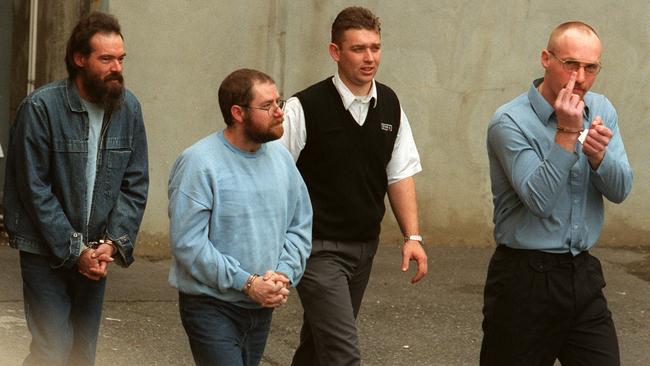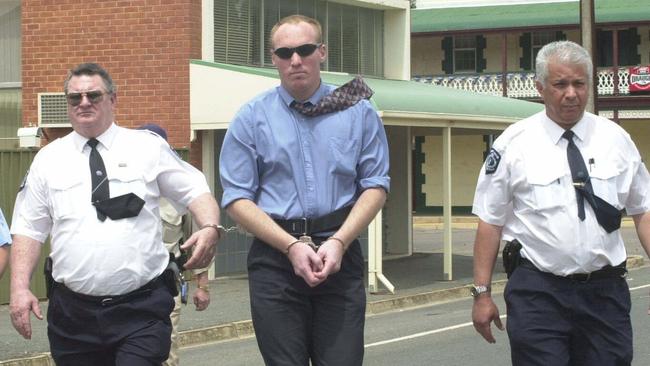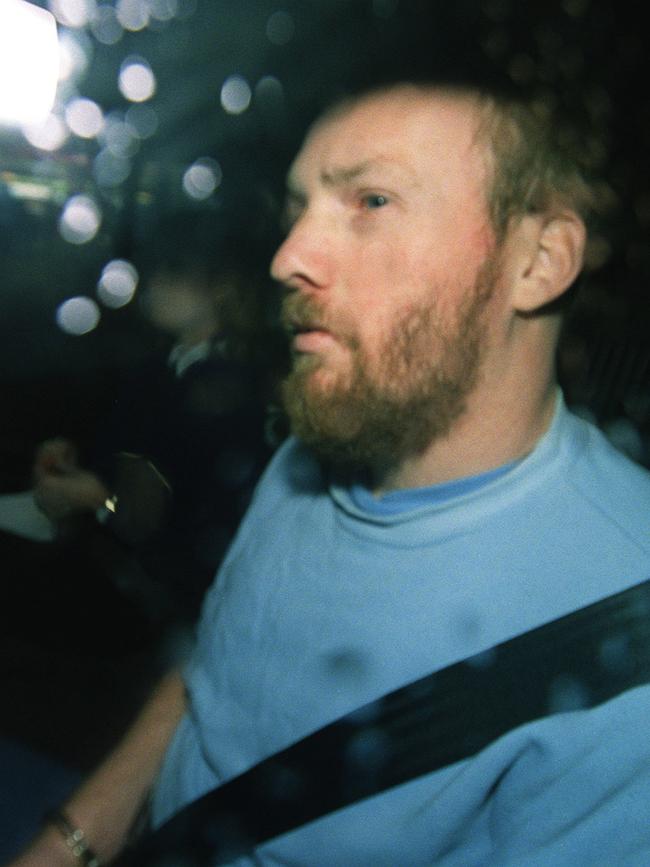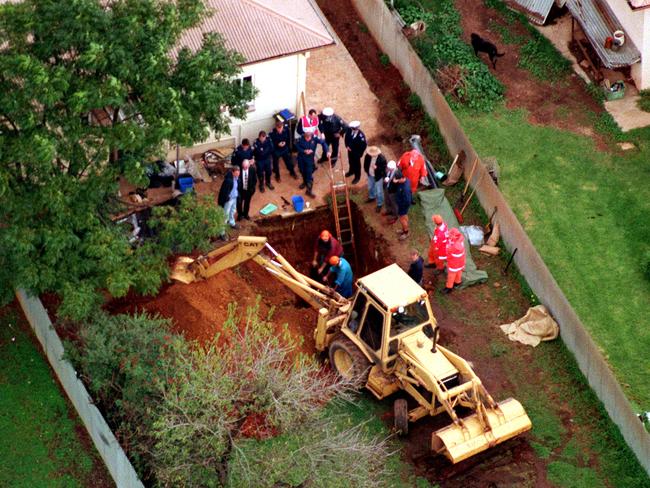Bodies-in-the-barrels killer Robert Joe Wagner launches Supreme Court action for eventual parole
Infamous bodies-in-the-barrels serial killer Robert Joe Wagner has launched Supreme Court action to secure his eventual release from prison.
True Crime
Don't miss out on the headlines from True Crime. Followed categories will be added to My News.
- Retired detective says killer Robert Joe Wagner must stay in jail
- How Snowtown killers’ twisted friendship spiralled into murder
- Fourth member of Snowtown gang Mark Haydon denied early parole
Infamous bodies-in-the-barrels serial killer Robert Joe Wagner has launched Supreme Court action to secure his eventual release from prison.
The murderer – who fried and ate the flesh of his last victim – has lodged an application to have a non-parole period set.
Convicted of 10 of the 11 so-called bodies-in-the-barrels 1990s murders, Wagner, 48, is serving 10 consecutive life sentences without parole over his role in arguably Australia’s most gruesome serial killings case. Wagner’s co-accused John Bunting – the ringleader in the killings – is serving 11 consecutive life sentences without possibility of parole.
Bunting has not taken any action to have a non-parole period set. The Advertiser understands that in his application, which will be heard in the Supreme Court on Monday, Wagner says he wants a non-parole period set because he needs a goal to work towards while incarcerated and that he realises if a non-parole period is set, it is likely to be lengthy.

Wagner has been in custody since his arrest by Major Crime detectives in May 1999, the day after eight bodies were found hidden in six barrels in a disused bank at Snowtown, in the Mid North of the state.
A further two bodies were excavated from the backyard of a Salisbury North home days later.
Wagner’s trial lasted 12 months – the longest in South Australian legal history – and he was finally convicted in 2003. When Wagner was sentenced by Justice Brian Martin he rose to his feet in the dock and stated: “Paedophiles were doing terrible things to children. The authorities didn’t do anything about it. I decided to take action. I took that action. Thank you.’’
However, the majority of the 12 victims were not paedophiles and Wagner and Bunting had been murdering them and then systematically stealing cash from their bank accounts as social security pay-ments continued to be deposited.

Their accomplices – Mark Haydon and James Vlassakis – are still in prison serving sentences of up to 26 years non-parole.
Wagner’s Supreme Court bid to determine his prison sentence has sparked outrage from the Homicide Victims Support Group and is certain to ignite intense community debate.
Group founder Lynette Nitschke said she was angered Wagner’s bid for eventual freedom had been lodged. Ms Nitschke expressed strong concern about Wagner’s move, saying it would “absolutely’’ revictimise the relatives of the victims in the killing spree.
“You just want them to go away and not hear about them,’’ she said. “One of the hard things is going through all of this over and over again.

“It always retraumatises, especially in cases such as this where parole or release is involved – anything that looks like they are going to get out of prison.’’
Ms Nitschke said she believed the community would expect the sentence handed down by Justice Martin would remain intact.
“The Snowtown murders are in the category of very few where they are so horrific I think the community gets so enraged by it all,’’ she said.
“This case involves so many more victims because there are multiple murders. It is going to affect a lot of people.
“It brings up a lot of the old feelings you are just starting to deal with, it brings it all to the surface again and stirred up.’’
Director of Public Prosecutions Adam Kimber SC yesterday declined to comment before Wagner’s application had been heard but indicated his office was available to assist with any queries victims may have.
The application to set a non-parole period is dealt with under the Sentencing Act 2017 and will be heard by a single Justice. Under the Act, it can be rejected by the court if it is deemed to be “inappropriate’’ for reasons including the gravity of the offence or the circumstances surrounding the offence, the criminal record of the applicant, the behaviour of the applicant during any previous period of release on parole or conditional release or any other circumstance.

Under the Act, if a non-parole period is granted, it must be for a minimum of 20 years for murder.
In 2014, The Advertiser revealed that Wagner had been using a US-based online forum to correspond with women. His profile, which had been set up by a friend, was taken down after protest by victims’ groups.
Wagner and Bunting are among a notorious group of serial killers who have been sentenced without the prospect of parole.
Others are Port Arthur gunman Martin Bryant, backpacker killer Ivan Milat and Victorian serial killer Peter Dupas.


